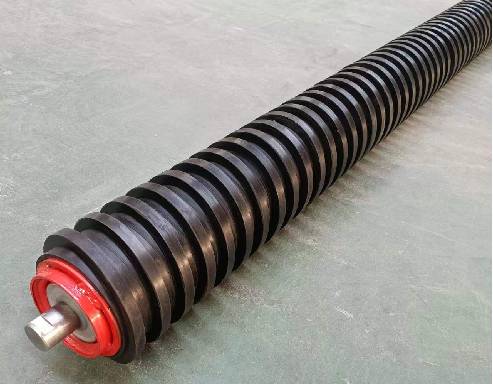 Afrikaans
Afrikaans  Albanian
Albanian  Amharic
Amharic  Arabic
Arabic  Armenian
Armenian  Azerbaijani
Azerbaijani  Basque
Basque  Belarusian
Belarusian  Bengali
Bengali  Bosnian
Bosnian  Bulgarian
Bulgarian  Catalan
Catalan  Cebuano
Cebuano  Corsican
Corsican  Croatian
Croatian  Czech
Czech  Danish
Danish  Dutch
Dutch  English
English  Esperanto
Esperanto  Estonian
Estonian  Finnish
Finnish  French
French  Frisian
Frisian  Galician
Galician  Georgian
Georgian  German
German  Greek
Greek  Gujarati
Gujarati  Haitian Creole
Haitian Creole  hausa
hausa  hawaiian
hawaiian  Hebrew
Hebrew  Hindi
Hindi  Miao
Miao  Hungarian
Hungarian  Icelandic
Icelandic  igbo
igbo  Indonesian
Indonesian  irish
irish  Italian
Italian  Japanese
Japanese  Javanese
Javanese  Kannada
Kannada  kazakh
kazakh  Khmer
Khmer  Rwandese
Rwandese  Korean
Korean  Kurdish
Kurdish  Kyrgyz
Kyrgyz  Lao
Lao  Latin
Latin  Latvian
Latvian  Lithuanian
Lithuanian  Luxembourgish
Luxembourgish  Macedonian
Macedonian  Malgashi
Malgashi  Malay
Malay  Malayalam
Malayalam  Maltese
Maltese  Maori
Maori  Marathi
Marathi  Mongolian
Mongolian  Myanmar
Myanmar  Nepali
Nepali  Norwegian
Norwegian  Norwegian
Norwegian  Occitan
Occitan  Pashto
Pashto  Persian
Persian  Polish
Polish  Portuguese
Portuguese  Punjabi
Punjabi  Romanian
Romanian  Russian
Russian  Samoan
Samoan  Scottish Gaelic
Scottish Gaelic  Serbian
Serbian  Sesotho
Sesotho  Shona
Shona  Sindhi
Sindhi  Sinhala
Sinhala  Slovak
Slovak  Slovenian
Slovenian  Somali
Somali  Spanish
Spanish  Sundanese
Sundanese  Swahili
Swahili  Swedish
Swedish  Tagalog
Tagalog  Tajik
Tajik  Tamil
Tamil  Tatar
Tatar  Telugu
Telugu  Thai
Thai  Turkish
Turkish  Turkmen
Turkmen  Ukrainian
Ukrainian  Urdu
Urdu  Uighur
Uighur  Uzbek
Uzbek  Vietnamese
Vietnamese  Welsh
Welsh  Bantu
Bantu  Yiddish
Yiddish  Yoruba
Yoruba  Zulu
Zulu Effective Solutions for Maintaining Clean Conveyor Belts in Industrial Applications
The Importance of Belt Cleaners in Industrial Operations
Belt cleaners play a vital role in the efficiency and maintenance of conveyor systems across various industries. From mining and aggregate processing to food production and packaging, conveyor belts are the backbone of material handling. However, the effectiveness of these systems diminishes significantly when belts are not properly maintained. This is where belt cleaners come into play, ensuring smooth operations and prolonging the lifespan of the equipment.
What are Belt Cleaners?
Belt cleaners, also known as belt scrapers, are devices installed at various points along a conveyor belt to remove material that adheres to the belt after it has transported its load. As materials like aggregates, grains, or powders can stick to the belt due to moisture, friction, or wear, the residual buildup can lead to operational inefficiencies. Belt cleaners tackle this issue by scraping off these residues, which helps maintain belt cleanliness and prevent spillage.
Types of Belt Cleaners
There are two primary types of belt cleaners primary and secondary. Primary belt cleaners are installed at the discharge point of the conveyor system and are the first line of defense against material buildup. They are typically designed to handle larger amounts of materials and are robust enough to withstand the rigors of the material handling process.
Secondary belt cleaners, on the other hand, are situated further down the line and are used for fine cleaning
. They play a critical role in achieving a higher level of belt cleanliness, which is especially important in industries where hygiene standards are paramount, such as food processing.Benefits of Using Belt Cleaners
belt cleaner

1. Enhanced Operational Efficiency By removing residual materials from the conveyor belt, belt cleaners help reduce downtime caused by blockages or spills. This means that operations can run more smoothly and efficiently, leading to increased productivity.
2. Cost Savings Regular cleaning of conveyor belts minimizes the need for maintenance and repairs. Accumulated material can cause excessive wear and tear on both the belt and the machinery, leading to costly replacements. By investing in effective belt cleaning systems, companies can significantly reduce long-term operational costs.
3. Safety Improvements Material spillage can create dangerous working environments, increasing the risk of accidents and injuries. Belt cleaners help mitigate this risk by ensuring that materials are effectively contained within the conveyor system.
4. Environmental Responsibility Clean conveyor systems contribute to a cleaner working environment. By reducing the amount of spillage and waste, companies can minimize their environmental footprint and improve their overall sustainability practices.
Choosing the Right Belt Cleaners
When selecting belt cleaners, several factors must be considered, including the type of material being handled, the speed of the conveyor belt, and the specific operational requirements of the facility. It’s essential to choose cleaners that are compatible with the existing system to ensure optimal performance.
In conclusion, belt cleaners are essential components of any conveyor system, particularly for industries that rely heavily on material handling. By maintaining clean belts, businesses can enhance efficiency, reduce costs, improve safety, and promote environmental sustainability. Investing in quality belt cleaning solutions is not merely a maintenance task—it is a strategic decision that can yield significant operational benefits in the long term. By prioritizing belt cleanliness, companies can ensure their operations are as effective and efficient as possible.
-
Revolutionizing Conveyor Reliability with Advanced Rubber Lagging PulleysNewsJul.22,2025
-
Powering Precision and Durability with Expert Manufacturers of Conveyor ComponentsNewsJul.22,2025
-
Optimizing Conveyor Systems with Advanced Conveyor AccessoriesNewsJul.22,2025
-
Maximize Conveyor Efficiency with Quality Conveyor Idler PulleysNewsJul.22,2025
-
Future-Proof Your Conveyor System with High-Performance Polyurethane RollerNewsJul.22,2025
-
Driving Efficiency Forward with Quality Idlers and RollersNewsJul.22,2025





























